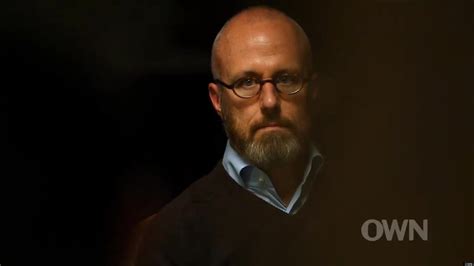A Quote by Sonia Sotomayor
Outside of the marriage context, can you think of any other rational basis, reason, for a state using sexual orientation as a factor in denying homosexuals benefits or imposing burdens on them? Is there any other rational decision-making that the government could make? Denying them a job, not granting them benefits of some sort, any other decision?
Related Quotes
Even those who identify themselves as libertarians follow an overtly anti-rationalist philosophy, as even a brief acquaintance with the work of Friedrich Hayek should make clear. The argument against reason in this literature is straightforward: it is impossible for any individual to acquire enough reliable information to make a rational decision, any actions founded on rational thought will therefore be delusional, any attempts at reason should therefore regarded as dangerous, and all action should instead be guided by tradition.
I am older than you. Believe me, there is no other way to live on earth. Men are not open to truth or reason. They cannot be reached by a rational argument. The mind is powerless against them. Yet we have to deal with them. If we want to accomplish anything, we have to deceive them into letting us accomplish it. Or force them. They understand nothing else. We cannot expect their support for any endeavor of the intellect, for any goal of the spirit. They are nothing but vicious animals. They are greedy, self-indulgent, predatory dollar-chasers
First, undoubtedly, there are some people who are coming from Cuba who immediately, or from any other country, benefit. But, what is the difference between that and someone who is coming from Nicaragua, Guatemala, Mexico, etc.? That is, we are simply going to say that someone who comes from another country to the United States - the first five years they're here - they don't qualify for federal benefits. They may benefit from local benefits, state benefits. Those decisions belong to other jurisdictions.
Raymond Aron ascribes to Weber the view that 'each man's conscience is irrefutable.' ... while [Weber] holds that an agent may be more or less rational in acting consistently with his values, the choice of any one particular evaluative stance or commitment can be no more rational than any other. All faiths and all evaluations are equally non-rational.
No guarantees come with children's liberation. But neither the promise of great benefits to all nor the prediction of great difficulties ahead can serve as the reason for granting or denying rights to children. Rights will be granted because without them children are incapacitated, oppressed, and abused.
Existence permeates sexuality and vice versa, so that it is impossible to determine, in a given decision or action, the proportion of sexual to other motivations, impossible to label a decision or act ‘sexual’ or ‘non-sexual’ . There is no outstripping of sexuality any more than there is sexuality enclosed within itself. No one is saved and no one is totally lost.
For other people who are involved in unrepentant sin whether it's the sin of homosexual sexual expression or gluttony or pride or heterosexual sexual expression outside of a monogamous heterosexual marriage or any other thing - are those people in danger of losing their salvation over those issues? Would Rob Gagnon and other people make as big a deal about that as they are with this? I don't think so.
The Constitution contains no 'dignity' Clause, and even if it did, the government would be incapable of bestowing dignity. ... Slaves did not lose their dignity (any more than they lost their humanity) because the government allowed them to be enslaved. Those held in internment camps did not lose their dignity because the government confined them. And those denied governmental benefits certainly do not lose their dignity because the government denies them those benefits.
When I talk to kids, I often tell them, "I'm going to disappoint you someday. I won't be worth my salt as a judge if I don't render at least one decision that makes you unhappy. Because if I'm following the law - and I don't write them - there has to be some decision you won't like. Please don't judge any person by one act. Take from them the good and don't concentrate on the little things that make you unhappy." That's my approach to family and friends, too.
If I make a stupid decision but don't execute it because I'm, say, lazy, then I'm lucky, not rational. However, at other times a person acts for good reasons just as she does what she thinks she shouldn't do, not knowing that they are good reasons. Just like sometimes we are a lot less rational than we think we are, it is also true that sometimes we are a lot more rational than we think we are.
I feel that all knowledge should be in the free-trade zone. Your knowledge, my knowledge, everybody's knowledge should be made use of. I think people who refuse to use other people's knowledge are making a big mistake. Those who refuse to share their knowledge with other people are making a great mistake, because we need it all. I don't have any problem about ideas I got from other people. If I find them useful, I'll just ease them right in and make them my own.
































